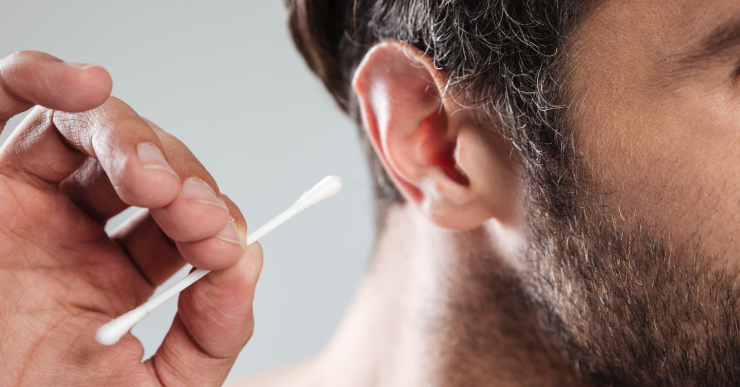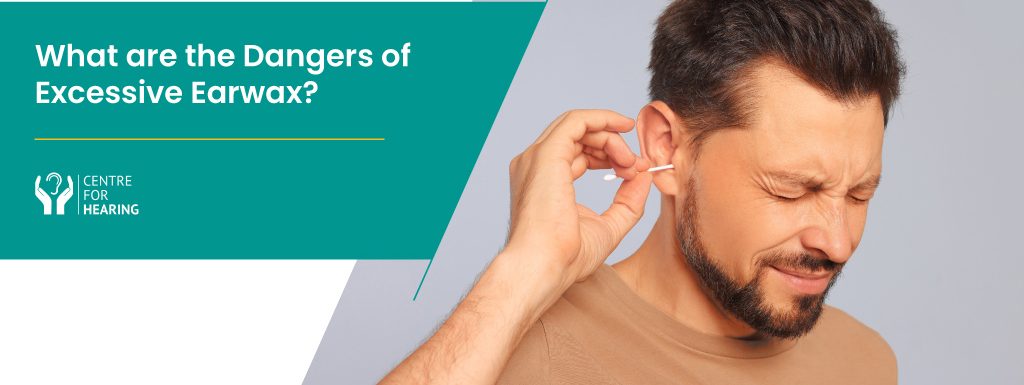It will not be wrong to say that our body is a little miracle. Earwax, a sticky substance present in our outer ear, is proof of it.
Like many other body parts, this secretion also protects our overall health. For example, it moisturises ear canals and prevents itchy ears.
However, excess earwax may also cause complications ranging from ear pain, hearing loss, reflex cough, and tinnitus. The problem is quite common among children as well as adults. According to The American Academy of Otolaryngology, around 1 in 10 children and 1 in 20 adults experience earwax build-up.
This article focuses on the causes, dangers, and symptoms of surplus earwax and its treatment and prevention. But first, let us learn more about it.
What is Earwax?

Our ear canal has glands that produce a waxy oil commonly known as earwax. It’s sticky and shiny in consistency and also a bit smelly, which keeps insects and germs from entering the ear canal.
Also known as cerumen in medical terms, it is a natural barrier that protects our inner ear from dirt, bacteria, insects, and damage.
Why Does Earwax Matter?
In short, it helps in protecting and cleaning the ear. Besides that, the secretion also has other significant functions:
- It protects the skin of the ear canal through lubrication and prevents it from getting dry and itchy.
- It provides a hydrophobic and acidic environment inside the external ear that helps prevent ear infections.
- Earwax and hair follicles in the ear canal act as a barrier and trap foreign elements, including dust, germs, and water, from entering and damaging the ear.
Understanding the Key Factors Behind Excessive Earwax Production
1. Abnormal amount of secretion
Normally, a small amount of the substance makes its way to the ear opening daily. However, when this quantity passed on to the ear opening is produced in excess, it causes build-up. As a result, this can lead to blockage and further complications.
2. Incorrect removal methods
Excessive production issues often arise because people use cotton swabs, bobby pins, rolled napkin corners, or other items to take the wax off.
3. Absence of expertise
Another reason too much earwax gets accumulated is that, quite often, it isn’t cleared well enough. One should seek medical intervention rather than cleaning the ear alone to avoid this.
4. Use of hearing devices
People wearing a hearing aid and earplugs are also more prone to earwax blockage.
Risks Associated with Excessive Earwax Buildup
Complications from an excess of buildup can range from ear pain and tinnitus (ringing in the ear) to balance-related issues.
If left untreated excess build-up can cause permanent hearing loss, which may affect your brain function in the long run.
Studies suggest hearing loss can lead to more severe problems like cognitive decline and dementia.
Symptoms of Excess Earwax

A closer look at the symptoms would help in the early diagnosis and treatment of excess earwax.
Some of the most common symptoms that indicate an excess build-up in the ear are:
- Excessive pain, itchiness, or infection in the ear
- Feeling of fullness or heaviness in the ear
- Ringing noises in the ear, also known as tinnitus
- Body balancing issues and dizziness
- Cough, cold, or fever
- A strong odour or discharge in the ear
However, the above symptoms don’t always mean that you have excess buildup in your ear. An expert health practitioner can examine your ears and determine if you have the condition.
Treatment of Excess Earwax
The treatment for excess earwax is simple. The ENT specialist would choose either of the below methods:
- Use a plastic spoon, also known as a curette, to scoop off the earwax from your ear.
- Irrigation of your ear by using lukewarm water, sodium bicarbonate, or any other prescription strength ear drops to flush out the excessive earwax.
- Use a gentle suction to take out excess earwax.
Avoid Excess Earwax: Some Methods of Prevention and Care
We can keep a check on excessive build-up through some regular practices like:
- You can use a doctor-prescribed ear drop regularly to soften the wax.
- Avoid cleaning your ear on your own as it may lead to damage to the eardrum and an increase in build-up.
- Visit your ENT specialist at least twice a year to get your ears and prevent excess earwax from accumulating.
Final Word
Sometimes, despite all the necessary precautions, your ears may experience excessive earwax build-up due to the shape of your ear canals.
In that case, your doctor might advise you to use some softening agents regularly. Also, regular check-ups with the ENT specialist or your health care provider would be enough to ensure that your ears are safe from excessive build-up.
Centre For Hearing® has a legacy of providing the best hearing care for over 40 years.
Our hearing care centres across the country offer a range of specialised audiometry tests to help you provide the best hearing aids across the country. We have a free helpline dedicated to addressing all hearing-related queries and concerns.
To learn more about our facilities and us, visit our website today!


















